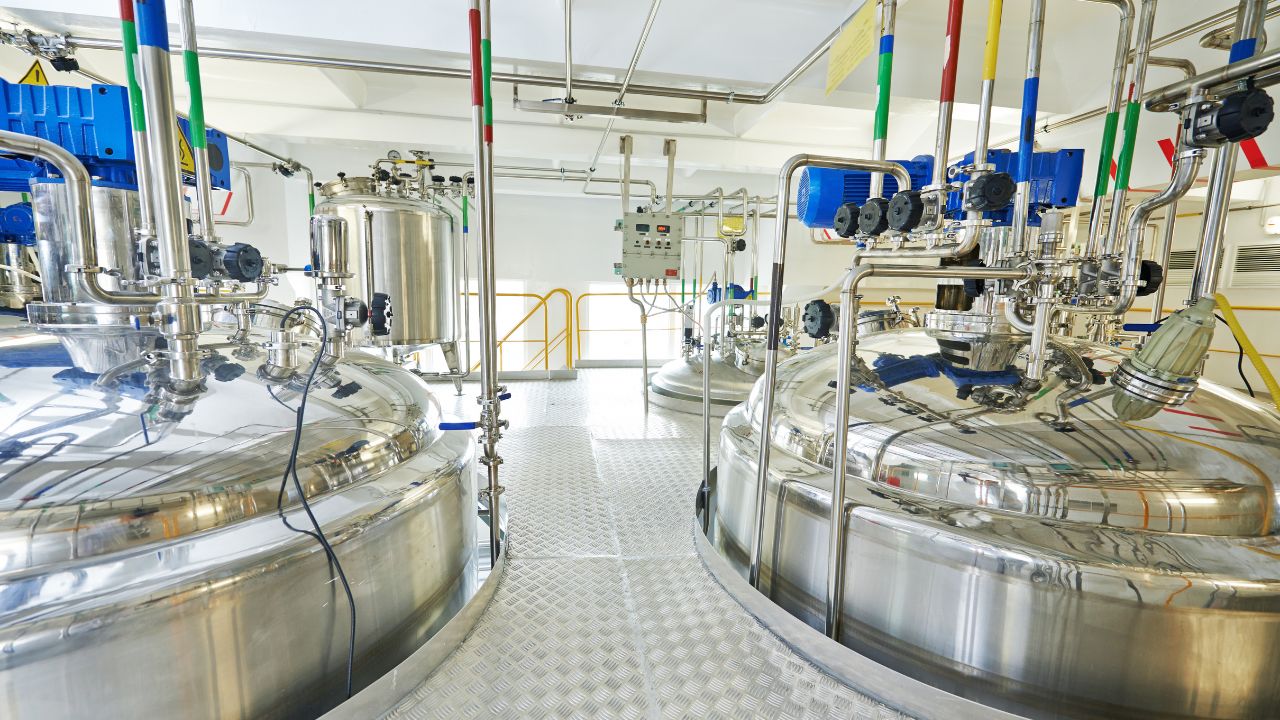As a seasoned professional in the pharmaceutical industry, I’ve witnessed firsthand the critical role that specialized machinery plays in drug manufacturing. The right equipment ensures not only product quality and consistency but also compliance with stringent regulatory standards.
In this article, we’ll explore the various types of machinery essential to pharmaceutical production, highlighting how different pharmaceutical machinery manufacturers cater to these diverse needs.
1. Formulation Equipment
Formulation is the foundation of drug manufacturing, involving the precise mixing of active pharmaceutical ingredients (APIs) with excipients.
Key machinery includes:
- High-shear mixers
- Planetary mixers
- Fluid bed processors
- Roller compactors
These machines, often provided by manufacturers like GEA and Glatt, ensure uniform distribution of ingredients and proper granulation, crucial for downstream processes.
2. Tablet Manufacturing Equipment
Tablet production is a cornerstone of pharmaceutical manufacturing, requiring specialized machinery for various stages.
Essential equipment includes:
- Tablet presses (single punch, rotary)
- Tablet coaters
- Dedusters and metal detectors
Companies like Korsch AG and Fette Compacting are renowned for their advanced tablet presses, offering high-speed, multi-layer capabilities crucial for modern pharmaceutical production.
3. Capsule Filling Machines
Capsules remain a popular dosage form, necessitating efficient filling machinery.
Types of capsule fillers:
- Tamping pin machines
- Dosing disc machines
- Auger filling machines
ACG Worldwide and Bosch Packaging Technology are leading pharmaceutical machinery manufacturers in this domain, offering solutions for both hard and soft gelatin capsules.
4. Liquid Filling and Sealing Equipment
For syrups, suspensions, and injectables, precise liquid handling is paramount.
Key machinery includes:
- Bottle filling lines
- Ampoule filling and sealing machines
- Vial filling systems
Manufacturers like Optima Pharma and Groninger specialize in aseptic filling solutions, crucial for maintaining product sterility.
5. Lyophilization (Freeze-Drying) Equipment
Lyophilization is vital for preserving heat-sensitive drugs and biologics.
Components of lyophilization systems:
- Freeze dryers (lyophilizers)
- Stoppering systems
- Automated loading/unloading systems
Companies such as IMA Life and SP Scientific are at the forefront of lyophilization technology, offering systems that ensure product stability and extended shelf life.
6. Packaging Machinery
Packaging is the final frontier in pharmaceutical manufacturing, crucial for product protection and patient compliance.
Types of packaging equipment:
- Blister packaging machines
- Cartoning machines
- Labeling systems
- Serialization and track-and-trace systems
Uhlmann and Marchesini Group are among the leading pharmaceutical machinery manufacturers specializing in end-to-end packaging solutions that meet global regulatory requirements.
7. Cleaning and Sterilization Equipment
Maintaining cleanliness and sterility is non-negotiable in pharmaceutical production.
Essential cleaning and sterilization equipment:
- Clean-in-place (CIP) systems
- Sterilize-in-place (SIP) systems
- Autoclaves
- Washers for containers and components
Manufacturers like Steris and Getinge provide comprehensive cleaning and sterilization solutions that ensure compliance with cGMP standards.
8. Process Analytical Technology (PAT) Equipment
As the industry moves towards continuous manufacturing and real-time release testing, PAT equipment becomes increasingly important.
Key PAT instruments include:
- Near-infrared (NIR) spectroscopy analyzers
- Raman spectroscopy systems
- Particle size analyzers
Thermo Fisher Scientific and Bruker are among the leading providers of PAT solutions, enabling real-time monitoring and control of critical process parameters.
Conclusion
The landscape of pharmaceutical manufacturing machinery is vast and continually evolving. As pharmaceutical machinery manufacturers innovate to meet the changing demands of the industry, it’s crucial for pharmaceutical companies to stay informed about the latest advancements.
When selecting equipment, consider factors such as:
- Scalability and flexibility
- Compliance with regulatory standards
- Integration capabilities with existing systems
- Total cost of ownership
- After-sales support and service network
By choosing the right combination of machinery from reputable pharmaceutical machinery manufacturers, pharmaceutical companies can optimize their production processes, ensure consistent product quality, and stay competitive in an increasingly complex global market.


